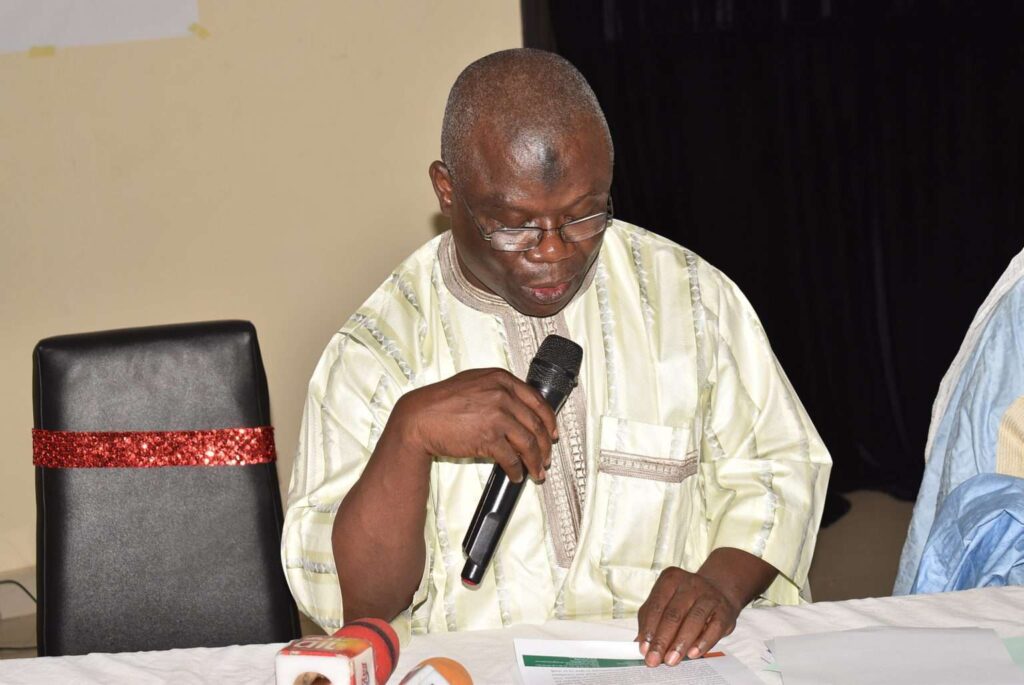Welcome statement by the Executive Director, Resource Centre for Human Rights & Civic Education (CHRICED), Comrade Dr. Ibrahim M. Zikirullahi at the Two-Day Training of Monitors on Maternal Health Expenditure Tracking in Gwale and Kumbotso LGAs of Kano State held at the Aminu Kano Centre for Democratic Studies (AKCDS, Mambayya House) Kano, Kano State on November 5, 2020.
Protocol
Distinguished monitors from Gwale and Kumbotso LGAs, ladies and gentlemen.
It is with gratitude to the Almighty Allah that I welcome you to this Training of Monitors on Maternal Health Expenditure Tracking in Gwale and Kumbotso LGAs of Kano State. The CHRICED project of Social Mobilization for Transparency and Accountability in the Implementation of Maternal Health Resource Budgets in Kano State is a citizen-driven project with the goal of ensuring the big budget figures allocated for healthcare in our dear state translate to quality maternal healthcare for people on the ground, especially in hard-to-reach rural areas.
The logic of this project is about the desire to raise the collective consciousness of all citizens about their rights and responsibilities with respect to ensuring quality maternal care. Knowing that health is a critical social service, which is at the heart of the welfare and wellbeing of citizens, CHRICED has been tirelessly working to ensure citizens put the issue of maternal healthcare on the front burner of the public discourse.
This training is one of the critical processes in the final preparation for the monitoring of the implementation of healthcare budgets in our various Primary Healthcare Centres. Our target is that at the end of this activity, you would have been sufficiently equipped with the technical capacity required to engage in data-driven monitoring of how maternal health funds are utilised across our respective PHCs.
Lest we forget, in the course of our various outreaches in the past, CHRICED had always canvassed the idea that the right to quality and affordable healthcare is a matter, which is well addressed in the Constitution governing the Federal Republic of Nigeria. Specifically, Section 17 of the 1999 Constitution as amended focuses on the social objective of the Nigerian State, with the mandate that the social order is founded on the ideals of freedom, equality and justice. Part of the principle for the realisation of the ideal of justice would be found in Section 17(3) (c), which focuses on the role of the state in ensuring the health, safety and welfare of all persons in employment are safeguarded and not endangered or abused.
This is closely followed by the express provisions in Section 17 (3) (d), which clearly points out that the State should work to bring about a social order where “there are adequate medical and health facilities for all persons. Agenda 2030, which outlines the Sustainable Development Goals (SDGs) puts forward certain key targets in the area of health, which remain relevant for measuring progress in the health sector in our state. Target 3.1 of the SDGs talks about reducing the global maternal mortality ratio to less than 70 per 100 000 live births by 2030. SDG target 3.2 is focused on ending preventable deaths of newborns and children under 5 years of age by 2030.
At the global level, there are a lot of ongoing efforts by various countries with the aim of reducing neonatal mortality to at least as low as 12 per 1000 live births and under-5 mortalities to at least as low as 25 per 1000 live births. The point must however be made that these ambitious global targets will not be achieved if there is no commensurate effort at the local level. Nigeria’s dire maternal health indicators point to the fact that as stakeholders, citizen monitors in our respective communities have a lot of work to do.
Your work as monitors is even more important because there is a need to continuously scrutinize the expenditure cycle to establish if maternal health funds are trickling down to the PHCs at the local level. You have been carefully selected for this task and I am convinced, given the caliber of men and women in this room, that you have what it takes to play this role. The importance of this work, apart from its foundational basis in the Constitution, comes from the fact that there are now a number of sources from which monies are pouring into the health sector in Kano State. Apart from the budget, other sources of health funds pouring into the health sector include; the National Health Insurance Scheme (NHIS), the Contributory Health Scheme, the Kano Health Trust Fund and even the Basic Health Provision Fund, among others.
With such a quantum of financial resources coming into the health sector, we need to know how well it is translating into quality maternal health services for the good people of Kano State. Above all, we must not forget that these efforts are meant to help our families, communities, state and country get rid of the scourge of maternal mortality. Even if we are not conversant with the statistics, many of us have had one experience or the other where someone close to us, a mother, wife, sister, aunty or niece has died in the throes of child birth. As monitors therefore, we must take this responsibility with a sense of commitment and dedication.
We owe this duty to ourselves, families, communities, state, and our country Nigeria. To our community activists and leaders, your commitment, diligence and cooperation will be counted on as we track the flow of maternal health funds.
Let me at this time thank our partners, Misereor-KZE of Germany, whose unflinching support has enabled us to contribute to the realisation of these laudable goals for the health sector in Kano.
Thank you for listening and God bless you all.

